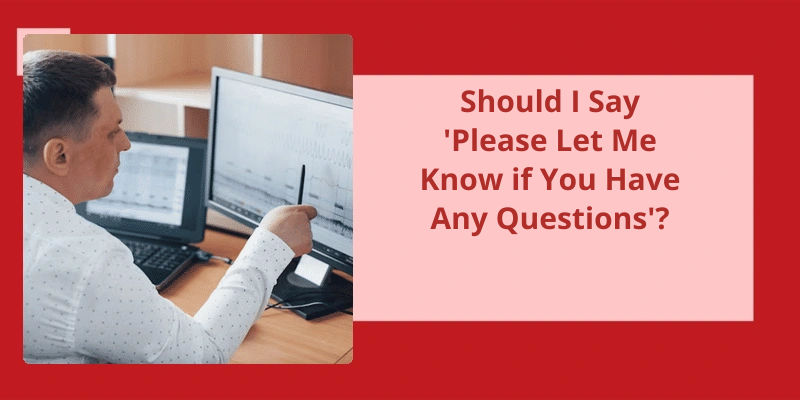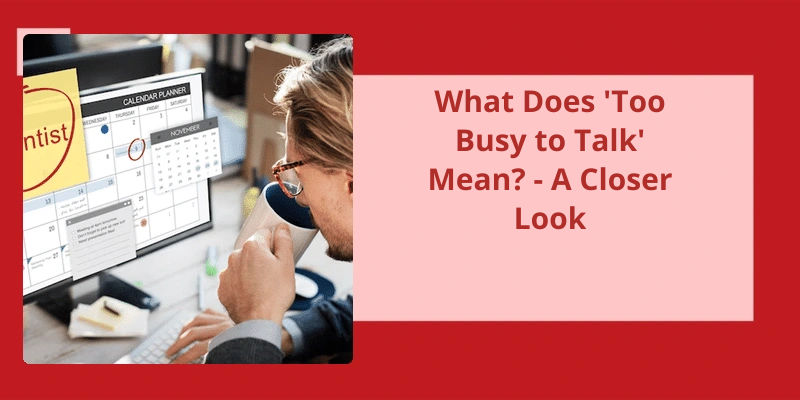As humans, one of our most fundamental abilities is to communicate. The ability to listen and understand what others are saying is paramount in building relationships, both personally and professionally. However, for some individuals, this seemingly simple task can prove to be quite a challenge. It can be frustrating to constantly ask people to repeat themselves or to be unable to follow along in conversations. This difficulty in listening and understanding can have a significant impact on one's life, making it more difficult to navigate social interactions, learn new information, and even perform at work or in school. If you’re among those individuals who struggle with this challenge, know that you aren’t alone, and there are resources available to help improve your listening and comprehension skills.
What Is the Meaning of Listening Comprehension?
Listening comprehension is a critical skill that all individuals should strive to develop because it plays an integral role in communication and learning. It’s the ability to listen to and understand spoken language in real-time, and it typically involves both bottom-up (processing at the word and sentence level) and top-down (processing at the larger discourse level) processes.
Additionally, the speakers accent, speed, and use of complex vocabulary or syntax can also affect how well a listener can comprehend the spoken message. Studies have shown that effective listening comprehension can be improved through targeted instruction and practice, such as explicit teaching of listening strategies, providing opportunities for extended listening practice, and exposing learners to a variety of spoken texts.
These assessments typically measure both the accuracy and efficiency of the listeners comprehension, as well as their ability to use the information in meaningful ways.
It involves the ability to comprehend spoken language at the discourse level and requires the listener to be actively engaged in the process.
Improving your listening skills can have a significant impact on your personal and professional relationships. By engaging in active listening, you can gain a better understanding of the message being conveyed and develop a deeper connection with the speaker. But what’re some practical strategies you can use to become a better listener? Let’s explore.
Can You Improve Your Listening Skills?
This involves not only listening to what they say but also observing their body language, tone of voice, and other nonverbal cues. It’s important to fully engage with the other person and to avoid any distractions that may interfere with your ability to listen effectively. One helpful technique is to repeat back what the other person has said, in order to confirm your understanding and ensure that you’re fully engaged with the conversation.
Another important factor in improving your listening skills is to remain open to feedback and to actively seek out opportunities to learn from others. This may involve seeking out advice or guidance from a mentor or coach, attending workshops or training sessions focused on listening skills, or simply engaging in conversations with diverse groups of people in order to broaden your perspective and gain new insights into different perspectives and experiences.
Effective listening also requires that you remain present in the moment, rather than allowing your mind to wander or become distracted by other thoughts or concerns. This means maintaining a state of mindfulness and awareness, and focusing your attention on the present moment and the conversation at hand. You can do this by practicing techniques such as deep breathing or meditation, which can help to calm your mind and bring your focus back to the present moment.
Additionally, it’s important to cultivate empathy and a genuine interest in others, in order to truly connect with them and listen to what they’ve to say. This involves developing a sense of curiosity and compassion towards others, and seeking to understand their perspective and experiences without judgement or preconceptions. By adopting an open and curious mindset, you can create a more inclusive and supportive environment that fosters greater communication and understanding between people.
By doing so, you can become a more effective communicator, build stronger relationships, and gain new insights and perspectives that can help you to grow both personally and professionally.
The Impact of Technology on Listening Skills and How to Manage It in a Conversation
Technology has revolutionized the way we communicate, and this has had a significant impact on our listening skills. The constant distraction of digital devices can make it difficult to stay present in a conversation. However, managing technology use during conversations can help improve listening skills. This can be achieved by setting boundaries, actively listening, and being aware of body language and nonverbal cues.
It’s important to acknowledge and address our preconceptions and biases when it comes to listening and understanding others. These biases can create barriers that prevent us from truly hearing what someone is saying and processing their message. In this article, we’ll explore some common reasons why people struggle to listen and understand, and offer tips for improving communication skills.
Why Do I Struggle to Listen and Understand?
Additionally, distractions and external factors can also impact your ability to listen and understand. It’s common to struggle with listening in a noisy or chaotic environment, and this can lead to misunderstandings or missed information. Furthermore, if youre feeling stressed, anxious, or overwhelmed, it can be difficult to focus on the conversation at hand, leading to a lack of understanding.
Another potential reason for struggling to listen and understand is communication styles. Different people may communicate in different ways, and if someones communication style doesn’t align with your own, it can be challenging to fully comprehend what theyre saying. This might include things like using technical jargon or industry-specific terms that youre not familiar with.
If youre struggling to listen and understand in a professional context, it could also be related to a lack of training or development in the area. Effective communication is an essential skill in many industries, but it’s not necessarily something that everyone is naturally good at. If you havent had the opportunity to develop your communication skills, it could be impacting your ability to listen and understand others.
Finally, if youre feeling fatigued or mentally exhausted, it can be difficult to stay attentive and focused during a conversation. This can lead to missing important details or failing to fully understand what the other person is saying. It’s important to take breaks and prioritize self-care to avoid burnout and ensure youre able to listen and absorb information effectively.
There are many reasons why you might struggle to listen and understand others. Preconceptions and biases can impact your ability to pay attention, while distractions and communication styles can also play a role. By identifying these potential barriers and finding ways to address them, you can work towards improving your ability to listen and communicate effectively.
Strategies for Improving Listening Skills, Such as Active Listening Techniques and Mindfulness Practices
Strategies for improving listening skills involve techniques such as active listening, which involves giving one’s full attention to the speaker, and using mindfulness practices to stay present and engaged in the conversation. These techniques can help individuals develop stronger listening skills and improve communication with others.
Source: 6 reasons why you’re a bad listener (and how to change it)
Listening is an essential communication skill that influences our interactions with others in various settings. However, listening comprehension can be challenging, especially when faced with complex or unfamiliar topics. Several factors affect how well we listen, including language-based, background, learner-based, and teacher-based factors that can help or hinder our ability to comprehend the spoken word fully. In the following sections, we’ll delve deeper into each of these four factors and explore their impact on effective listening.
What Are the 4 Factors That Affect Listening?
Listening is an important communication skill that’s necessary for effective interpersonal interactions. However, there are several factors that affect listening and listening comprehension. Firstly, language-based factors refer to the language used in the spoken message. Most people listen to messages that are in a foreign language, which makes listening comprehension difficult. This is because listeners face difficulties in recognizing sounds, words, and grammatical rules of the second language. Therefore, the spoken message must be in a language that the listener is familiar with.
Secondly, background factors refer to personal and situational factors that affect listening comprehension. Examples of this include background noise, speakers accent, speaking speed, and complexity of the message. Noise can significantly impact one’s ability to process information and can be particularly problematic in public spaces. The accent and speed at which a speaker speaks can also affect listening comprehension as it can be difficult to understand the speaker in certain situations.
Personality traits, motivation, and listening strategies are a few examples of these factors. A persons motivation to listen is crucial in determining whether they’ll be actively involved in the conversation or not. Motivation is influenced by factors such as social norms, expectations, and values, and can be enhanced through making the listening experience enjoyable.
Fourthly, teacher-based factors refer to characteristics of the teacher that influence the listening capacity of the listener. Factors that affect this include teaching strategies, instructional materials, and assessment methods. Teachers need to understand their students” needs and use appropriate teaching methods to facilitate listening comprehension. Also, instructional materials must be engaging and targeted towards their proficiency levels to enhance their comprehension.
These factors can be divided into four groups: language-based, background, learner-based, and teacher-based factors. Understanding these factors can help individuals improve their listening skills and engage in more effective communication.
Techniques for Active Listening and Improving Listening Skills
- Maintain eye contact with the speaker.
- Focus solely on the speaker’s words and body language.
- Avoid interrupting the speaker or thinking of responses while they’re speaking.
- Show interest in what the speaker is saying by nodding or asking questions.
- Repeat the speaker’s key points in your own words to show understanding.
- Don’t judge or make assumptions about the speaker based on their words.
- Use nonverbal cues like facial expressions and body language to communicate your attentiveness.
- Practice empathy to understand the speaker’s perspective and feelings.
- Eliminate distractions like phones or other electronic devices.
- Take notes to help you remember important points and show the speaker you’re listening.
Now that we understand the challenges that can arise during the listening process, let’s explore some strategies that can help overcome these obstacles and improve our ability to truly listen and understand.
What Are the 3 Things That Make Listening Difficult?
Listening is a complex process that requires our full attention. However, there are several factors that can make it difficult to listen effectively. One of the most common barriers to effective listening is the presence of various sounds in the environment. These sounds can interfere with a listeners ability to hear a sources message clearly. For example, background noise in a crowded coffee shop could make it hard to hear a friend talking across the table.
In addition to internal distractions, there are also external factors that can cause listeners to miss important details. One of these is our own bodies. For example, if we’re tired or hungry, it can be harder to stay focused on a speakers message. Similarly, if we’re experiencing physical discomfort, such as pain or discomfort from an injury or illness, this can also make it hard to listen attentively.
Another factor that can interfere with effective listening is poor communication skills on the part of the speaker. This could mean using unclear language, failing to articulate key points clearly, or speaking too quickly or too slowly for the listeners comprehension. In such cases, the burden falls on the listener to ask clarifying questions in order to make sense of the message.
Finally, cultural and linguistic differences can also contribute to communication breakdowns. When two parties come from different cultural or linguistic backgrounds, there may be misunderstandings or misinterpretations that can make it difficult to effectively communicate. This can be particularly challenging in settings where cross-cultural exchange is common, such as in international business or diplomacy.
In summary, listening can be challenging for a variety of reasons, including external distractions, internal preoccupations, physical discomfort, poor communication skills, and cultural differences. By recognizing these barriers to effective listening, we can take steps to improve our communication skills and build stronger, more meaningful relationships with others.
Understanding the root causes of poor listening comprehension is crucial for improving communication skills. While there are various factors such as distractions or discomfort that can impact one’s ability to concentrate, it’s essential to identify the underlying cause in order to effectively address the issue. In this article, we will explore the different reasons for poor listening comprehension, and provide tips on how to enhance your ability to listen attentively.
What Causes Poor Listening Comprehension?
Additionally, poor listening comprehension can arise from an inability to process and interpret the information being presented. This could be due to a number of factors, such as a learning disability, language barrier, or lack of background knowledge on the topic. When someone isn’t able to understand the vocabulary or concepts being discussed, it can lead to confusion and frustration, ultimately hindering their ability to comprehend the content.
This means that someone may not be actively engaged in the conversation, or they may be more focused on formulating their response rather than truly listening to the speaker.
For example, individuals with attention deficit hyperactivity disorder (ADHD) may struggle with listening comprehension due to difficulties with sustained attention and processing information. Similarly, individuals with hearing impairments may have difficulty with listening comprehension if they don’t have access to the appropriate accommodations, such as hearing aids or assistive listening devices.
However, with the right interventions and support, individuals can work to improve their listening skills and better comprehend the information being presented to them. This may involve developing active listening and concentration techniques, seeking out accommodations or support, or addressing underlying cognitive or neurological conditions. Ultimately, the key to improving listening comprehension is identifying the underlying factors contributing to the difficulty and developing a tailored approach to address them.
The Impact of Technology on Listening Comprehension
Technology has had a significant impact on listening comprehension. With the rise of audio and video content, we now have access to a vast amount of information and media. However, there’s a concern that technology may decrease our ability to comprehend written or spoken language. While research is ongoing, it’s important to balance our use of technology with regular practice in listening and comprehension skills.
Conclusion
This issue can stem from various factors such as hearing difficulties, attention deficits, or language barriers. However, it’s crucial to acknowledge that having trouble with understanding doesn’t indicate a lack of intelligence or ability. Fortunately, there are strategies and resources available to aid in improving listening skills, such as active listening techniques, targeted exercises, and professional assistance. By seeking support, practicing patience, and utilizing effective communication strategies, it’s possible to minimize the impact of listening difficulties on daily life and enhance overall comprehension skills.






